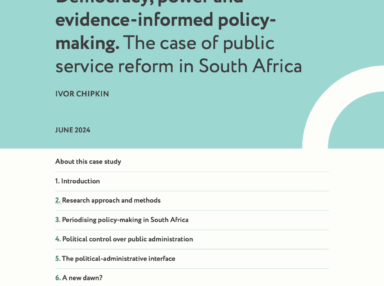Defining ‘State Capture’ in South Africa: Democracy, Bureaucratic Autonomy and Elite Populism
This paper argues that South Africa suffered a major democratic reversal after the election of Jacob Zuma as President of the country in 2009 and especially from 2012 when the project of Radical Economic Transformation was pursued with vigor in State Owned Companies. This reversal was invisible theoretically. Contemporary definitions of democracy, especially as they inform the literature on political transitions, reduce the phenomenon to the rules of political participation. Yet over the last ten years South Africa saw, not so much a rolling back of political rights as concerted attacks on the autonomy of state administrations. Without the conceptual tools to understand these attacks on the bureaucracy as attacks on democracy, the period from 2007 to 2017 has largely been construed in terms of corruption, criminality and patronage.
Like US democrats of the Jacksonian era, the African National Congress, especially under Jacob Zuma was beholden to a conception of majority rule that made it hostile to existing, autonomous administrations and that drove it to prevent others at all levels of government from coming into being. In this sense, the protagonists of ‘state capture’ in South Africa did not so much capture the state as block its becoming. State capture has set back the development of South Africa’s democracy by corrupting, weakening and, ultimately, preventing the emergence of a South African bureaucracy.
This paper argues that that must we think of bureaucratic autonomy as a democratic virtue.


